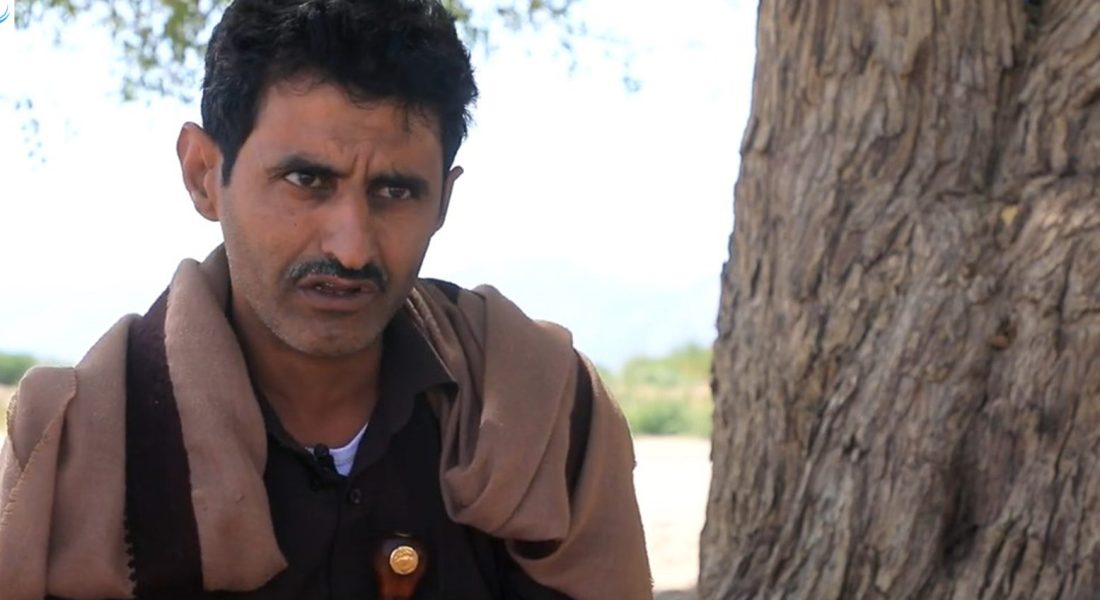Life in Yemen’s central Marib province is fraught with danger, according local residents.
Salem Diman, who lives in Harib District, west of Marib province, told Project Masam: “Our movements are no longer smooth as they were, but they become more cautious. Every step we take, whether towards our farms or homes, and even on our children’s way to school, there is the possibility of a mine planted by the Houthi militia.”
Diman explained: “After the liberation of Hareb District, the residents returned to their homes. Yet, Houthi mines were awaiting them, so there were explosions in the cars of citizens, whether with IEDs or landmines.”
The local resident said he had received Mine Risk Education sessions carried out by Masam’s experts, who warned civilians of any suspicious objects. Through this awareness campaign in his area, Diman said he had gained valuable knowledge about the various shapes and sizes of landmines.
During the latest rainy season, Diman said that many landmines and improvised explosive devices (IEDs) were swept away by floods to new areas that had not previously been contaminated, to the extent that landmines and unexploded ordnance (UXO) were now visible on the ground.
“Even if a farmer is hoping to operate his machine or plowing his farms, he cannot because of his fear of landmines, and this is what made people leave their farms,” Diman highlighted.
30 to 50 per cent of agricultural land cleared
The local resident called upon those in charge of the demining teams to intensify their efforts and reinforce the teams in order to clear the district of landmines.
With regards to the conditions of farmers in Harib district, Diman shared a harsh reality: farmers can no longer do their jobs not walk safely, due to the contamination.
“In the past, we used to freely take our animals especially camels to pastures and without fear. But now, the situation has changed. Trees that were the source of joy and delight have become the source of fear and horror because Houthi militias planted mines and IEDs inside them.”
Reiterating his thanks to Project Masam’s engineering teams, Diman said he hopes that they will continue to carry out their humanitarian landmine clearance operations, due to the large area of the district.
“In the last days of the Houthi militia presence in Harib, the Yemeni army and the Southern Giants Brigades advanced to liberate the district, the militias planted a full belt of landmines extending from the Al-Asad area to the Al-Sawda area,” he said.
This new contamination has resulted in the death of three camels in three separate areas. A number of camels also had their legs amputated after being injured in landmine explosions.
Accordingly, Masam’s teams moved to this area and removed more than 165 landmines from the same location.
“We appeal to Project Masam to intensify and increase the number of demining teams in the province to fully clear it of mines that have been indiscriminately planted.”
Diman added that Masam teams have already cleared between 30 and 50 per cent of agricultural land in Harib district.
The district was under Houthi control before Yemeni government troops sought to seize control of the strategic area in early 2022.

